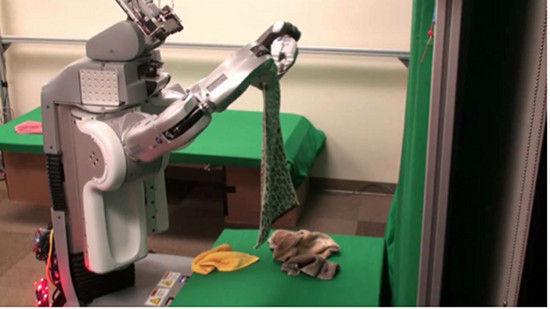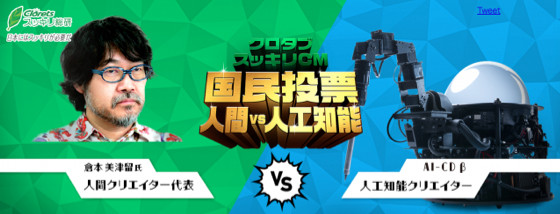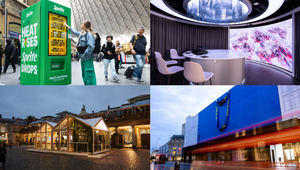
When Robots Can Do Everything We Can… What Will We Do?!

Way back in 2013, researchers at Oxford University helped sow the seeds of our panic about AI when they estimated that almost half of US occupations were likely to be automated. More recently at the World Government Summit in Dubai, Tesla and SpaceX CEO Elon Musk commented: “There will be fewer and fewer jobs that a robot cannot do better”. And let’s not get too complacent that we’re mostly talking about administrative roles, because in October last year, lingerie retailer Cosabella replaced its digital agency with an AI platform named ‘Albert’. Since then Albert has more than tripled ROI and increased Cosabella’s customer base by 30%.
But rather than building a bunker or booking our ticket to Mars, surely this could end up being a good thing. Because although the rise of AI might be inevitable, how we respond to it is not.
I believe the real challenge is not that younger, smarter algorithms are going to kick us out of our jobs; but that we need to work and think differently in a world where algorithms, robotic devices and micro-programs become our co-workers. Not least, to prepare us for the water-cooler chat about the new season of ‘Humans’, which could prove interesting.
Here’s how we need to shift our thinking:
Understanding the difference between what we’re good at vs what machines are good at
Single focus repetitive tasks, analysing vast amounts of data, following a clear set of logical rules, spotting patterns – give me a machine any day. Once we got past ‘showing our workings’ for our Maths GSCEs didn’t we all switch to calculators and Excel to help with complex arithmetic? What they’re not so good at, right now – cue hilarious clip of robot trying to fold a towel – are multi-disciplinary tasks or tasks that are more ‘chaotic’. In the words of historian and author Yuval Noah Harari: ‘For AI to squeeze humans out of the job market it need only outperform us in the specific abilities a particular profession demands’. So maybe we need to think less about being narrow specialists (which ultimately a programme could replicate) and delivering more value across a number of areas or skillsets. Because that is what makes you much harder to replace – at least with just one automaton!

Being clear about where exactly we do add value
If processing data can happen faster and more efficiently with AI and automation our value is in turning this raw ‘information’ into insight and wisdom to inform creative and planning. Using this to generate better and more insightful creative briefs that in turn deliver unique, original and effective creative concepts. Because if you think you’re safe in a ‘creative role’ here’s a cautionary tale: last summer a human creative director only just beat McCann Erickson Japan's AI creative director in a challenge for the most effective campaign. Also in Japan, last year a Japanese AI program co-authored a short-form novel that passed the first round of screening for a national literary prize. So perhaps the real opportunity is through AI/creative collaboration, and this is where the next well of untapped potential lies. Our value will be in knowing how and where to use AI in combination with our own input.

Identifying how to seize the business opportunity of free time
It is predicted that over the next few decades we will be able to free up a significant proportion of our time from working to being ‘at leisure’. But what will we do with all this free time? Apart from worrying endlessly about a dystopian machine-ruled future, of course. Bearing in mind that we’re all doing longer hours and switching off less, we’re extremely rusty at what to do when we’re not working. This is a business opportunity that we should be thinking of right now: relaxation coaching for high-flying execs who’ve forgotten how to unwind; micro leisure-time opportunities for people to fit into the extra hours/days they are free each week; increased uptake in immersive, emotionally compelling content to entertain and educate (to ensure we remain multi-skilled and talented, so no AI will beat our creative output). The opportunities are endless.
Educating the next generation of talent for the opportunity, rather than the threat
This is a whole separate topic in its own right, but we need to get this right now, otherwise we risk teaching an entire generation some interesting historical theories that bear no relevance to the world in which they will need to succeed. And as creative agencies how are we succession planning and building in AI-future-proofing skills to our own teams? How are we equipping them for a brave new world, where Albert is our peer and where we embrace rather than fear the opportunities AI brings? Box CEO Aaron Levie sums this up nicely: “AI can seem dystopian, because it’s easier to describe existing jobs disappearing than to imagine industries that never existed appearing.”
And if all else fails we should be offering our services to this new breed of team member. Because judging by the alarmist articles already spelling doom for a world run by machines, our AI colleagues are going to need some serious creative help to enable them to shake off their ‘Terminator’ stigma; some significant brand ‘repositioning’ and certainly some PR for any awkward ‘iRobot’ moments.
Charlotte Bunyan is VP, Strategy Director at Jack Morton Worldwide













